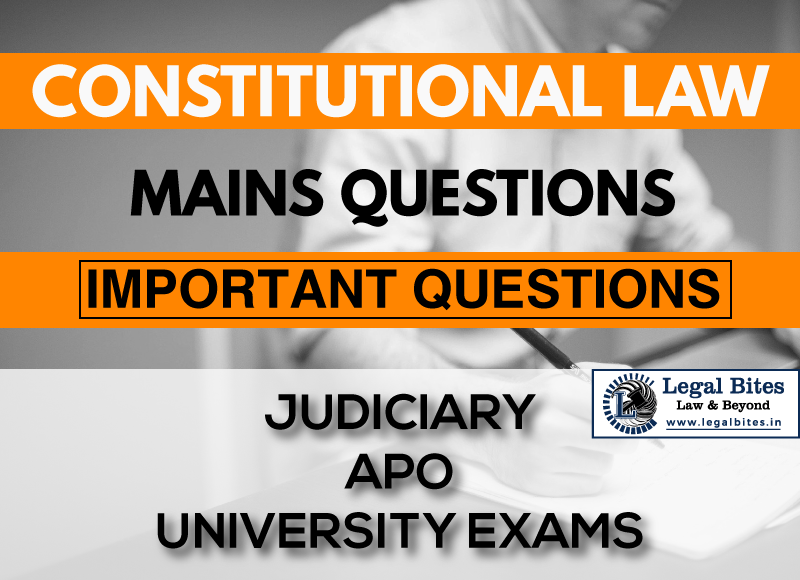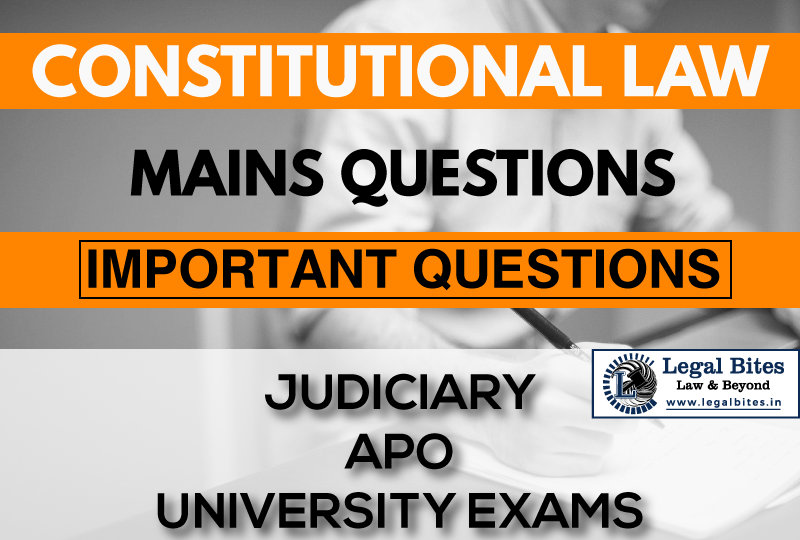
Question: “Right to privacy is not an absolute right, but now it is a fundamental right.” Explain the statement with reference to Justice K.S. Puttaswamy (Retd.) and Anr Case. [BJS 2018]
Find the answer to the mains question only on Legal Bites. [“Right to privacy is not an absolute right, but now it is a fundamental right.” Explain the statement with reference to Justice K.S. Puttaswamy (Retd.) and Anr Case.]
Answer
A nine-judge bench of the Supreme Court in the 2017 Aadhar case of Justice K.S. Puttaswamy v. Union of India (AIR 2017 SC 4161) passed a historic judgment affirming the constitutional right to privacy. It declared privacy to be an integral component of Part III of the Constitution of India, which lays down our fundamental rights, ranging from rights relating to equality (Articles 14 to 18); freedom of speech and expression (Article 19(1)(a)); freedom of movement (Article 19(1)(d)); protection of life and personal liberty (Article 21) and others.
These fundamental rights cannot be given or taken away by law, and all laws and executive actions must abide by them. The Supreme Court has, however, clarified that like most other fundamental rights, the right to privacy is not an “absolute right”. Subject to the satisfaction of certain tests and benchmarks, a person’s privacy interests can be overridden by competing state and individual interests. Any impugned action will continue to be tested on the “just, fair and reasonable” standard evolved under Article 21 of the Constitution.
A violation of the Right to Privacy in the context of an arbitrary State action would attract a “reasonableness” inquiry under Article 14; similarly, privacy invasions that implicate Article 19 freedoms would have to fall under the specified restrictions under this constitutional provision like public order, obscenity, etc. Further, intrusion into life or personal liberty under Article 21, which forms the “bedrock of the privacy guarantee”, would have to be just, fair and reasonable.
Important Mains Questions Series for Judiciary, APO & University Exams
- Constitutional Law Mains Questions Series Part-I
- Constitutional Law Mains Questions Series Part-I
- Constitutional Law Mains Questions Series Part-II
- Constitutional Law Mains Questions Series Part-IV
- Constitutional Law Mains Questions Series Part-V
- Constitutional Law Mains Questions Series Part-VI
- Constitutional Law Mains Questions Series Part-VII
- Constitutional Law Mains Questions Series Part-VIII
- Constitutional Law Mains Questions Series Part-IX
- Constitutional Law Mains Questions Series Part-X
